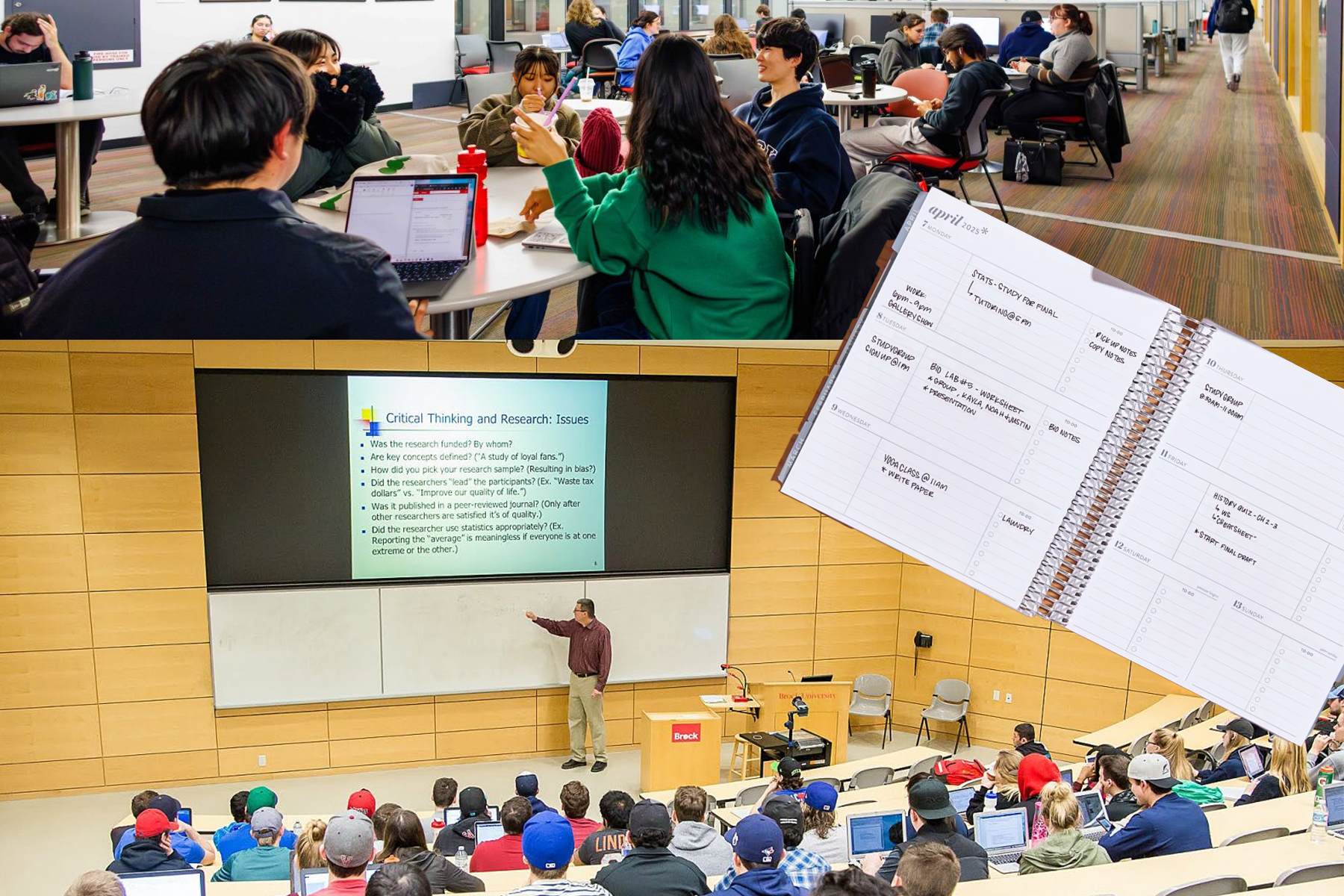Starting university can feel like entering an entirely new ecosystem that is equal parts academic marathon and social experiment. Figuring out where to start in both arenas can be overwhelming.
However, there are two moves you can take to make your life infinitely easier. Let’s break them each down so you can start strong on both fronts.
Academic First Moves
One of the most significant shifts from high school to university is the level of personal responsibility.
Unlike high school, no one will check in to make sure that you have completed your readings or submitted your assignments, nor will they personally ensure you remember the date of your next midterm. Everything you need to know, including deadlines, test dates and expectations are outlined in your course syllabus. It is your responsibility to stay on top of it all, which can get overwhelming fast.
The first week of classes — a.k.a. “syllabus week” — is the perfect window to get organized before the real workload kicks in.
Most professors won’t assign much during this introductory period, so this is your chance to create systems that will carry you through the semester. Essentially, this is when Google Calendar becomes your best friend. It might seem simple or even obvious, but when used with intention, it can become the command centre of your academic life.
Using Google Calendar, you can break your life into categories — academics, social events, clubs, work shifts — and create a separate calendar for each. You can toggle calendars on and off, so you only see what is relevant in the moment. You can even colour-coordinate your calendar for each course, allowing you to easily visualize your week and focus on specific areas when needed.
It is also helpful to add each of your recurring classes as repeating events in your calendar (e.g., “MATH 1P01, Mon/Wed/Fri 10:00–11:00”). Be sure to include classroom locations, professor names or Zoom links in the event descriptions.
Sitting down with each syllabus and identifying key dates will help you stay organized throughout the semester. These due dates might include midterms, essays, presentations and quizzes. Add these as one-time events on your calendar to ensure that they are not forgotten as the semester progresses.
Additionally, Google Calendar has a built-in “tasks” feature that allows you to create checklists for the day or week. These can be tied to specific deadlines and checked off as you complete them. While this is a rather small thing, crossing off tasks can be extremely satisfying and provide a sense of motivation while holding you accountable. It is also helpful to ensure your calendar is synced with your phone, laptop and tablet, guaranteeing you are always up to date, regardless of your location.
University life demands a high level of independence, but that doesn’t mean that you have to navigate it blindly. Think of this as your toolkit for success. The sooner you take control of your schedule; the more freedom you’ll have to enjoy everything else university has to offer.
Social First Moves
Starting university can feel like you have been dropped into an unfamiliar world where everyone else seems to already know what they are doing. If you are introverted or unsure of how to put yourself out there, the social side of things can feel just as intimidating as academics.
But the reality is: everyone is waiting for someone else to make the first move. Most people are way more open to connection than they appear to be on the surface. The best part is that you don’t need a perfect icebreaker or a confident personality to start forming connections. Sometimes, all it takes is a seat and a simple “hi.”
Without fail, every single person I sat next to would admit that they were also nervous and secretly hoping someone else would break the ice.
After greeting your peers, you can advance the conversation smoothly with plenty of conversation starters. Asking someone what their major is, why they chose their program, or where they grew up are great ways to get to know someone. It was surprising how far a few basic questions could go.
Even though you won’t become best friends with everyone, it is still valuable to build small social ties. Having someone you can study with, borrow notes from or sit next to in class can make university feel far less isolating.
If the first try feels awkward, that’s normal and okay! Social confidence takes practice. The more you show up, the more natural it becomes. Go to events, stay after tutorials for a few minutes or join a club just for the experience. These seemingly small moments often build into long-lasting friendships.
Remember: connection does not have to be loud or dramatic, it just needs to be genuine. And someone out there is hoping you’ll be the one to say hi, so if you are feeling brave enough, make the first move!
—
Making the first move — both academically and socially — is less about being overtly bold and more about intentionality.
By setting up your academic systems early, you give yourself the structure and clarity to handle whatever the semester throws at you. Then, by breaking the ice with the person next to you, you open the door for friendships, collaborations and support that will make university feel far less overwhelming. Neither step requires perfection, just action.
The earlier you make these first moves, the sooner campus will start to feel less like uncharted territory and more like a living ecosystem you know how to move through — one where you can plant roots, grow connections and flourish.

